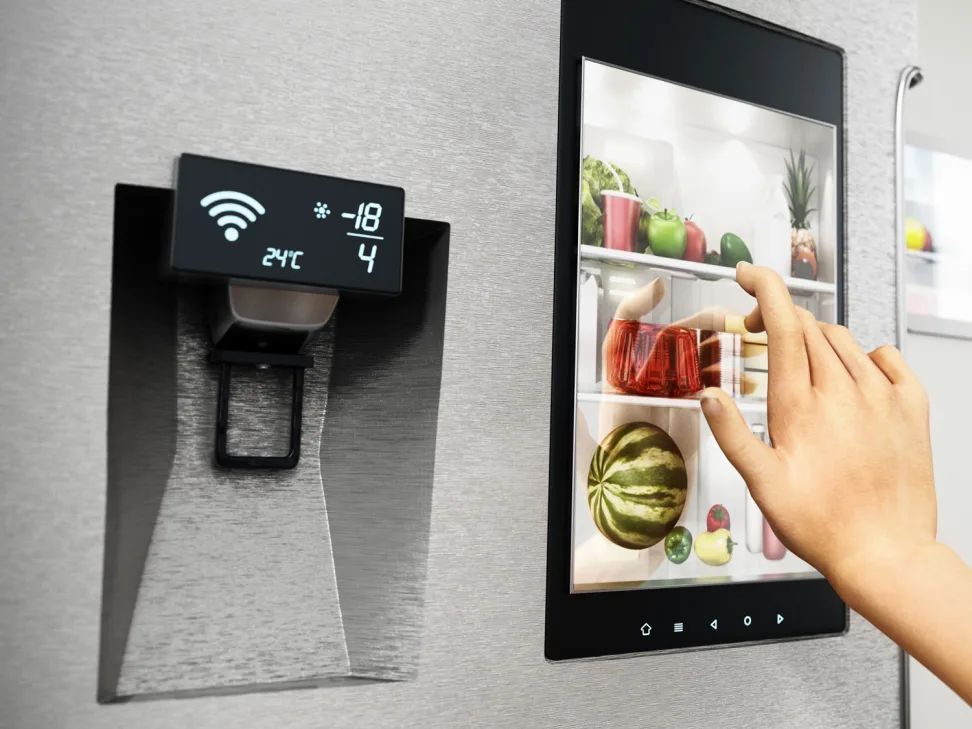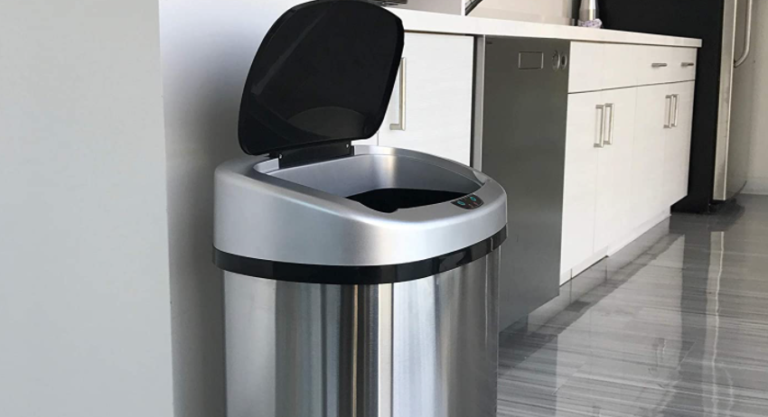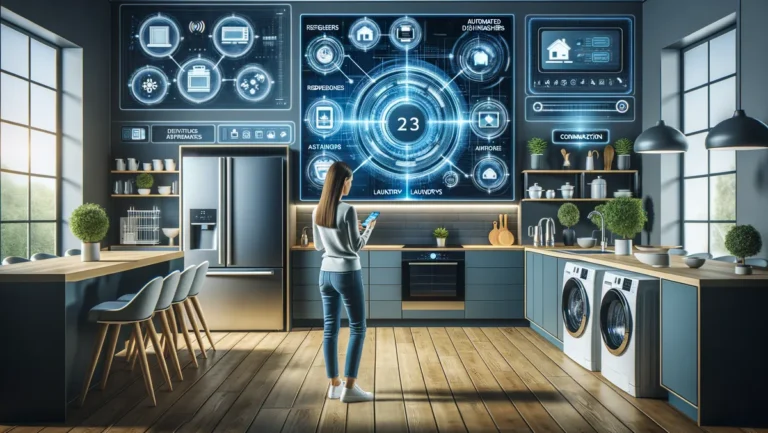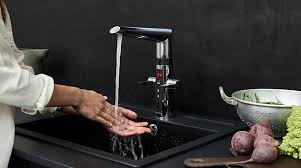The evolution of kitchen appliances has dramatically transformed the way we manage our households, with smart refrigerators emerging as a revolutionary innovation in recent years. These technologically advanced appliances go far beyond the basic function of keeping food cold, offering a suite of features designed to enhance convenience, efficiency, and overall quality of life. In this article, we will explore the myriad benefits of smart refrigerators, illustrating why they are becoming an increasingly popular choice for modern homes.
What Are Smart Refrigerators?
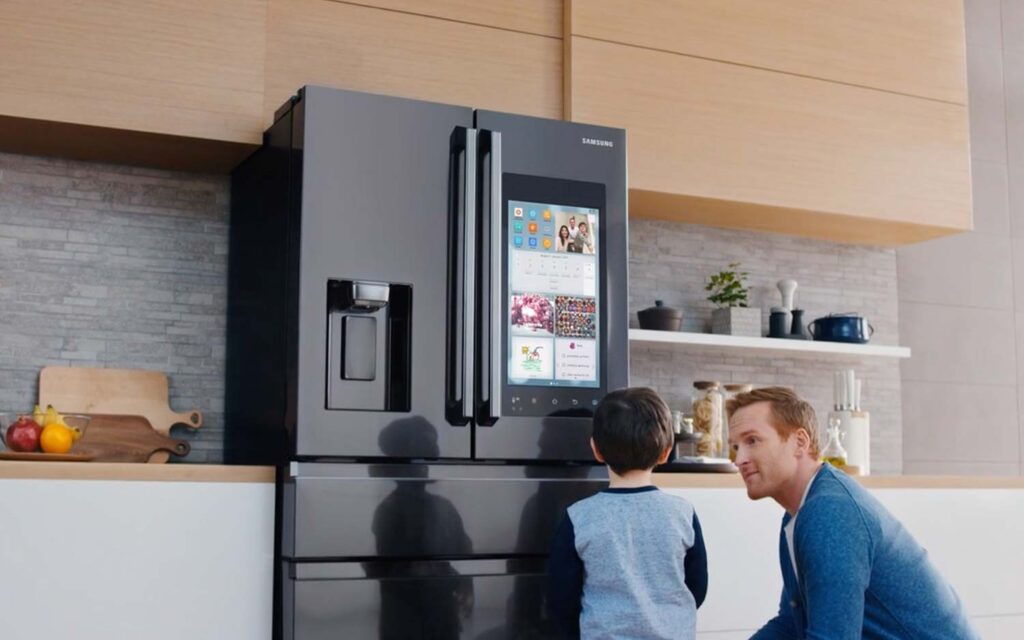
Smart refrigerators are equipped with advanced digital and internet capabilities that distinguish them from traditional models. These refrigerators often include touchscreens, Wi-Fi connectivity, and integration with other smart home devices. Unlike traditional refrigerators that only focus on cooling and preserving food, smart refrigerators provide a wide range of functionalities such as inventory management, energy monitoring, and even entertainment options.
Functionalities
A smart refrigerator is essentially a refrigerator that is connected to the internet and can interact with other devices in your home. It includes various high-tech features such as internal cameras, touchscreen interfaces, and voice control capabilities. These refrigerators are designed to help users manage their kitchen activities more efficiently by automating tasks that would otherwise require manual effort.
Comparison with Traditional Refrigerators
Traditional refrigerators primarily focus on maintaining a stable temperature to keep food fresh. While some high-end models may offer features like ice makers or water dispensers, they lack the connectivity and advanced functionalities of smart refrigerators. In contrast, smart refrigerators provide a more interactive experience, allowing users to monitor and control various aspects of their refrigerators remotely.
Key Features that Distinguish Smart Refrigerators
Key features of smart refrigerators include:
- Internal cameras that allow users to see inside the fridge without opening the door.
- Touchscreen interfaces for easy access to recipes, calendars, and other applications.
- Wi-Fi connectivity for remote monitoring and control.
- Voice control compatibility with smart home assistants like Alexa and Google Assistant.
- Automated inventory tracking and management.
- Energy efficiency monitoring and reporting.
Energy Efficiency and Cost Savings
One of the most compelling benefits of smart refrigerators is their energy efficiency. These appliances are designed with advanced technologies that optimize energy use, helping to reduce electricity consumption and lower utility bills.
Advanced Energy-Saving Technologies
Smart refrigerators come with features like adaptive defrost, which only activates when necessary, and variable speed compressors that adjust their speed based on cooling demands. These technologies ensure that the refrigerator operates efficiently without wasting energy.
For instance, adaptive defrost reduces the number of defrost cycles by monitoring the compressor and evaporator usage. This means that the refrigerator only defrosts when needed, saving both energy and reducing wear on the appliance. Variable speed compressors, on the other hand, operate at different speeds depending on the cooling needs, rather than running at full speed all the time. This results in significant energy savings over time.
Also Read: Smart Kitchen Design Ideas: Reimagine Your Kitchen
Real-Time Energy Consumption Monitoring
Many smart refrigerators offer real-time monitoring of energy consumption, allowing users to track their usage and identify patterns. This data can help households adjust their habits to be more energy-efficient, further reducing costs.
For example, users can receive notifications if the refrigerator door is left open, which can lead to increased energy consumption. By addressing such issues promptly, households can avoid unnecessary energy waste. Additionally, some models provide insights into how different settings and features impact energy use, enabling users to make informed decisions about their refrigerator’s operation.
Long-Term Cost Benefits
While the initial investment in a smart refrigerator may be higher compared to traditional models, the long-term cost benefits are significant. The savings on energy bills over the lifespan of the refrigerator can offset the upfront cost, making it a financially sound investment.
Moreover, the durability and advanced features of smart refrigerators often mean that they require fewer repairs and replacements. This contributes to their overall cost-effectiveness, providing value for money in the long run. With energy prices continuously rising, the ability to monitor and reduce energy consumption can lead to substantial savings over time.
Enhanced Food Management
Smart refrigerators revolutionize the way we manage our food, reducing waste and ensuring that ingredients are used efficiently.
Automated Inventory Tracking
One of the standout features of smart refrigerators is their ability to track the contents automatically. Using internal cameras and barcode scanning, these refrigerators can maintain an up-to-date inventory of all stored items.
For instance, when groceries are placed inside the refrigerator, the internal cameras can capture images of the contents, while barcode scanners can log the items. This information is then processed by the refrigerator’s software to create an inventory list. Users can access this list through their smartphone or the refrigerator’s touchscreen, making it easy to keep track of what is inside.
Expiry Date Notifications
Smart refrigerators can notify users when food items are approaching their expiration dates. This feature helps prevent food from going bad, reducing waste and ensuring that users always have fresh ingredients on hand.
By scanning barcodes or manually entering expiration dates, users can rely on their smart refrigerator to keep track of when items need to be used. This is particularly useful for managing perishable goods like dairy products, fruits, and vegetables. Notifications can be set to alert users a few days before the expiration date, allowing ample time to use the items or plan meals accordingly.
Recipe Suggestions
Based on the available ingredients, smart refrigerators can suggest recipes, making meal planning easier and more convenient. This feature not only helps users make the most of their groceries but also encourages culinary creativity.
For example, if the refrigerator detects that you have certain ingredients, it can suggest recipes that use those items, helping you avoid waste and discover new dishes. This can be especially helpful for families with busy schedules, as it simplifies the meal planning process and reduces the need for last-minute trips to the grocery store.
Improved Convenience and Accessibility
Smart refrigerators offer unparalleled convenience and accessibility, making them an integral part of a connected home.
Remote Control and Monitoring
With Wi-Fi connectivity, users can control and monitor their refrigerators remotely via smartphone apps. This feature allows users to adjust temperature settings, check the contents, and receive alerts about potential issues, even when they are not at home.
For instance, if you are at the grocery store and unsure whether you need to buy milk, you can check the contents of your refrigerator using the app. Additionally, if the refrigerator detects an issue, such as a malfunctioning component or a door left open, it can send an alert to your phone, allowing you to address the problem promptly.
Voice Control Compatibility
Many smart refrigerators are compatible with voice assistants like Amazon Alexa and Google Assistant. This integration allows users to interact with their refrigerator using voice commands, making tasks like setting reminders or adding items to a shopping list effortless.
For example, you can simply say, “Alexa, add milk to my shopping list,” and the refrigerator will update your list accordingly. This hands-free convenience is particularly useful when your hands are full or when you are multitasking in the kitchen.
Touchscreen Interfaces
Smart refrigerators often feature touchscreen interfaces that serve as a central hub for family activities. These interfaces can display calendars, weather updates, and even stream music or videos, turning the refrigerator into a multifunctional device.
The touchscreen can be used to leave notes for family members, set reminders, or even access recipe apps. Some models also allow you to browse the internet, watch cooking tutorials, or follow along with interactive recipes, making the cooking experience more engaging and enjoyable.
Enhanced Food Preservation
The advanced cooling technologies in smart refrigerators help preserve food better than traditional models.
Advanced Cooling Technologies
Smart refrigerators use advanced cooling technologies like multi-airflow systems and dual evaporators to maintain optimal temperature and humidity levels throughout the refrigerator. This ensures that food stays fresh for longer.
Multi-airflow systems distribute cool air evenly across all shelves, preventing temperature fluctuations that can lead to food spoilage. Dual evaporators maintain separate humidity levels for the refrigerator and freezer compartments, ensuring that each area is kept at the ideal conditions for preserving different types of food.
Separate Temperature Zones
Many smart refrigerators offer separate temperature zones for different types of food. For example, the refrigerator may have a dedicated drawer for vegetables that maintain higher humidity levels, keeping produce crisp and fresh.
This feature allows users to customize the storage environment for various food items, such as meats, dairy, and beverages. By maintaining optimal conditions for each type of food, smart refrigerators help extend shelf life and maintain nutritional value.
Humidity Control Features
Humidity control features in smart refrigerators prevent moisture loss in fruits and vegetables, extending their shelf life and maintaining their nutritional value.
By creating a balanced environment, these features help preserve the texture, flavor, and nutritional content of stored items. This is particularly important for fruits and vegetables, which can quickly lose their freshness if not stored correctly. Humidity-controlled drawers provide the perfect environment for produce, ensuring that they remain crisp and flavorful.
Smart Features and Integrations
The integration capabilities of smart refrigerators make them a key component of a connected home ecosystem.
Integration with Other Smart Home Devices
Smart refrigerators can seamlessly integrate with other smart home devices, such as smart thermostats, lights, and security systems. This integration allows for a more cohesive and automated home environment.
For example, if the refrigerator detects that the kitchen is getting too warm, it can communicate with the smart thermostat to adjust the temperature. Similarly, the refrigerator can be programmed to turn on kitchen lights when the door is opened, enhancing visibility and convenience.
Smart Shopping Lists
Smart refrigerators can generate shopping lists based on the items that are running low. Some models even allow users to place online grocery orders directly from the refrigerator’s interface, streamlining the shopping process.
This feature ensures that you never run out of essential items and simplifies the process of keeping your kitchen stocked. By automatically generating shopping lists, smart refrigerators save time and reduce the likelihood of forgetting important groceries.
Notifications and Alerts
Smart refrigerators send notifications and alerts for various issues, such as if the door is left open or if there are temperature fluctuations. These alerts help prevent potential problems and ensure that the refrigerator operates efficiently.
For instance, if the temperature inside the refrigerator rises above a certain threshold, an alert can be sent to your phone, allowing you to take immediate action to protect your food. These notifications help maintain the integrity of stored items and prevent spoilage due to unforeseen issues.
Health and Safety Benefits
Smart refrigerators contribute to a healthier lifestyle by helping users manage their dietary needs and ensure food safety.
Monitoring and Managing Dietary Needs
Smart refrigerators can track food consumption and provide nutritional information, helping users make healthier choices. This feature is particularly beneficial for individuals with specific dietary requirements.
For example, if you are trying to follow a low-sodium diet, the refrigerator can alert you to foods that are high in sodium and suggest healthier alternatives. By providing detailed nutritional information, smart refrigerators empower users to make informed decisions about their diet.
Nutritional Information
By scanning barcodes or manually inputting data, users can access detailed nutritional information about the food stored in their refrigerator. This feature helps users stay informed about their dietary intake.
Nutritional information can include calorie counts, macronutrient breakdowns, and information about vitamins and minerals. This data can be used to plan balanced meals and ensure that dietary goals are met.
Temperature and Humidity Alerts
Smart refrigerators provide alerts if the temperature or humidity levels deviate from the optimal range, ensuring that food is stored safely. This feature helps prevent foodborne illnesses and maintains the quality of stored items.
By maintaining consistent temperature and humidity levels, smart refrigerators help reduce the risk of bacterial growth and food spoilage. This is particularly important for perishable items like meat and dairy products, which require precise storage conditions to remain safe for consumption.
Environmental Impact
Smart refrigerators contribute to a more sustainable lifestyle by reducing food waste and using eco-friendly materials.
Reduction in Food Waste
The automated inventory management and expiry date notifications help users minimize food waste by ensuring that ingredients are used before they go bad.
By providing real-time information about the contents of the refrigerator, smart refrigerators help users plan meals more effectively and avoid overbuying. This not only saves money but also reduces the environmental impact of wasted food.
Eco-Friendly Materials
Many smart refrigerators are made from eco-friendly materials and designed with energy-efficient components, reducing their environmental footprint.
Manufacturers are increasingly using recyclable materials and sustainable manufacturing practices to produce smart refrigerators. This commitment to environmental responsibility extends to the design and construction of the appliances, ensuring that they are both durable and environmentally friendly.
Sustainable Lifestyle
By promoting energy efficiency and reducing waste, smart refrigerators help users adopt a more sustainable lifestyle, aligning with broader environmental goals.
The ability to monitor and reduce energy consumption is a key aspect of living sustainably. Smart refrigerators enable users to make environmentally conscious choices without sacrificing convenience or performance.
Future Trends and Innovations
The future of smart refrigerators looks promising, with continuous advancements and new features on the horizon.
Upcoming Advancements
Future smart refrigerators may include even more sophisticated AI algorithms for better inventory management, more precise temperature control, and enhanced integration with other smart devices.
For example, AI-powered cameras and sensors could provide more accurate identification of food items, allowing for more precise inventory tracking and recipe suggestions. Enhanced temperature control systems could use machine learning to optimize cooling based on usage patterns and external conditions.
New Features and Integrations
Innovations such as 3D food printing, advanced food preservation technologies, and more intuitive user interfaces are expected to become standard features in the next generation of smart refrigerators.
3D food printing could allow users to create custom food items at home, while advanced preservation technologies could extend the shelf life of perishable goods even further. More intuitive user interfaces could make it easier to access and use the various features of the refrigerator, enhancing the overall user experience.
Evolving Role in Smart Homes
As smart homes become more prevalent, smart refrigerators will play an increasingly central role, serving as the hub of connected kitchen appliances and integrating seamlessly with the broader smart home ecosystem.
In the future, smart refrigerators could coordinate with other smart devices to create a fully automated kitchen environment. For example, they could work with smart ovens to suggest recipes and preheat the oven based on the ingredients available, or with smart dishwashers to optimize cleaning cycles based on the types of dishes used.
Conclusion
Smart refrigerators offer a wealth of benefits that go beyond traditional refrigeration, enhancing energy efficiency, food management, convenience, food preservation, health, safety, and environmental sustainability. With continuous advancements and innovations, these appliances are set to become an indispensable part of modern kitchens, providing unparalleled functionality and improving overall quality of life. Investing in a smart refrigerator is a smart choice for anyone looking to embrace the future of home technology.
The benefits of smart refrigerators are clear, and as technology continues to advance, these appliances will only become more integrated and essential in our daily lives. By offering a combination of convenience, efficiency, and sustainability, smart refrigerators represent the future of kitchen appliances, making our lives easier and more connected.

